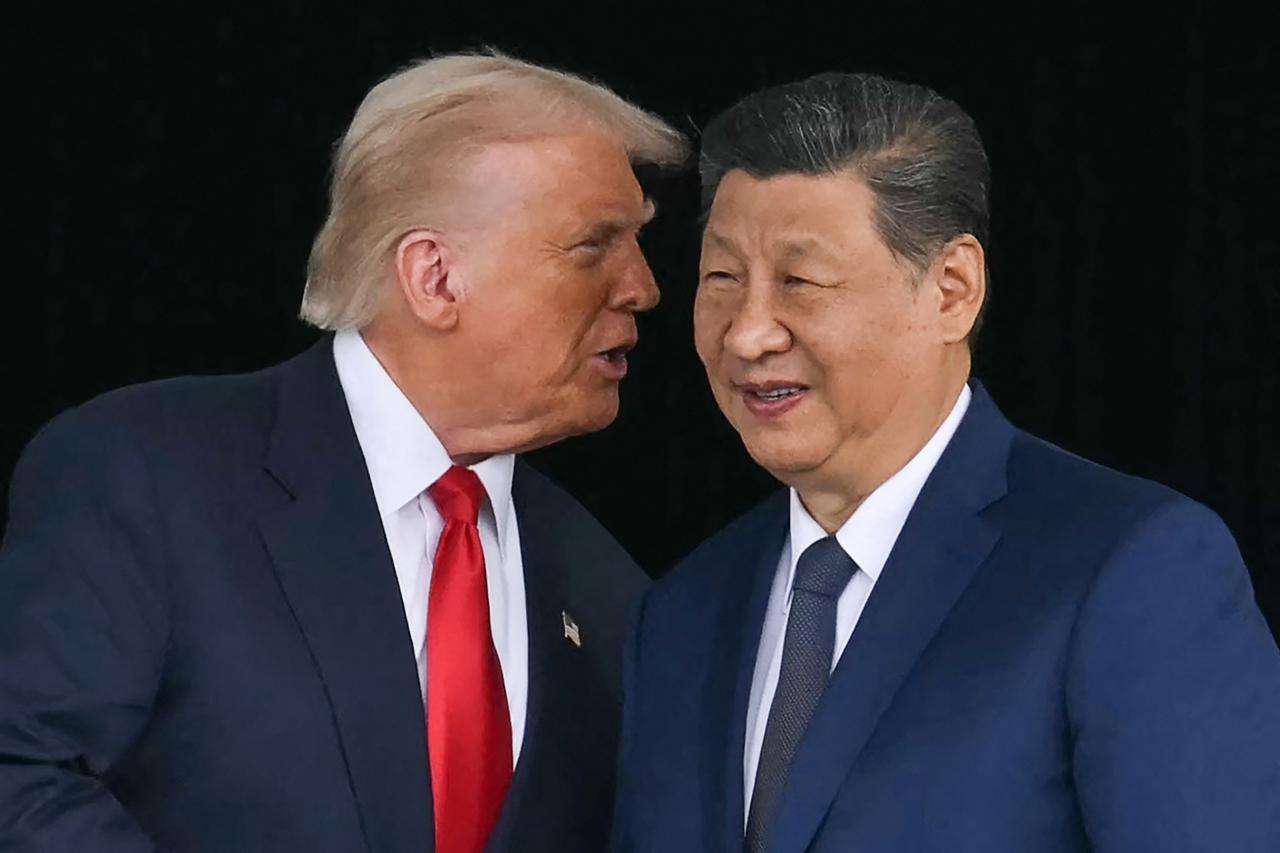
U.S. President Donald Trump said Thursday that he and Chinese President Xi Jinping agreed on a one-year deal to maintain the flow of rare earth exports and to lower U.S. tariffs on Chinese goods to 47% from 57% following their talks on the sidelines of the Asia-Pacific Economic Cooperation (APEC) summit in Gyeongju, South Korea.
The meeting, held alongside the APEC summit that brought together leaders from 21 Pacific Rim economies, including Japan, Australia, and Canada, was the first in-person encounter between the two leaders since 2019 and resulted in several trade and diplomatic understandings, including cooperation on fentanyl precursor controls, semiconductor sales, and the war in Ukraine.
Calling the talks a "great success," Trump said the two sides reached "an outstanding group of decisions" and rated the meeting "a 12 out of 10."
He also announced plans to visit China in April 2026, with Xi expected to make a return visit to the United States afterward.
Trump said China had agreed to continue rare earth exports, reversing an earlier plan to restrict shipments that could be used for military or semiconductor purposes.
"All of the rare earth has been settled. That roadblock is gone now, there’s no roadblock at all on rare earths," he said aboard Air Force One, adding that Xi assured him "they’re gonna keep those flowing."
The one-year agreement, which can be renewed annually, eases tensions between Washington and Beijing over the supply of critical minerals used in electric vehicles, smartphones, and defense systems.
Trump also announced tariff reductions, saying the U.S. would lower overall tariffs on Chinese goods from 57% to 47%, along with a separate cut on products related to fentanyl precursor chemicals from 20% to 10%. He said Xi pledged to "work very hard to stop the flow" of those chemicals, which Washington blames for fueling the opioid crisis. "It’s complex because of what the precursors do," Trump noted, expressing hope for tangible results.

The two leaders discussed China’s purchases of semiconductors from U.S. chipmaker Nvidia, Trump said, describing Washington’s role as "more of an arbitrator or referee" in those dealings.
When asked about Nvidia’s new Blackwell artificial intelligence chip, which is subject to U.S. export restrictions, Trump said, “We’re not talking about the Blackwell... But a lot of chips, you know, a lot of the chips. And that’s good for us.” His remarks suggested that while high-end AI chips remain restricted, other semiconductor exports could continue.
Trump said the war in Ukraine "did come up" and that the U.S. and China would "work together on it to stop people being killed." Still, he added, "The two sides are locked in fighting, and sometimes you’ve got to let them fight, I guess. Crazy."
He confirmed that Taiwan, which China claims as its territory, "never came up" in the discussions. "That was not discussed, actually," he told reporters.
Chinese President Xi Jinping praised Donald Trump for his efforts to promote peace and stability during their meeting in Busan, commending his role in securing the Gaza ceasefire and mediating a peace pact between Cambodia and Thailand.
"The world today is confronted with many tough problems," Xi said, adding that China and the U.S. could "jointly shoulder our responsibility as major countries and work together for the good of both nations and the world."
He acknowledged that the two sides "do not see eye-to-eye on many issues," but said recent trade talks, including those in Malaysia, had made "encouraging progress."
"In the face of winds, waves and challenges, you and I should stay the right course and ensure the steady sailing forward of the giant ship of China-U.S. relations," Xi said.
Trump called Xi "a great leader of a great country" and said he believed the two nations would maintain "a fantastic relationship for a long period of time."